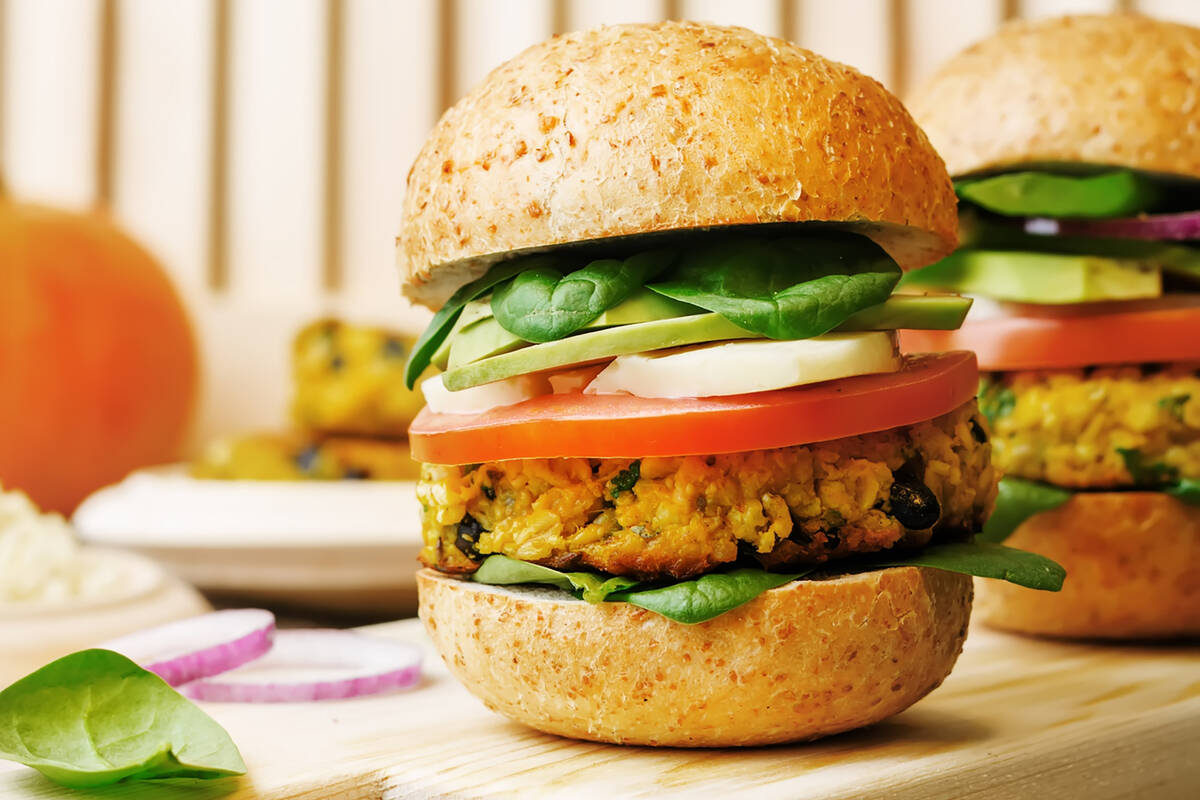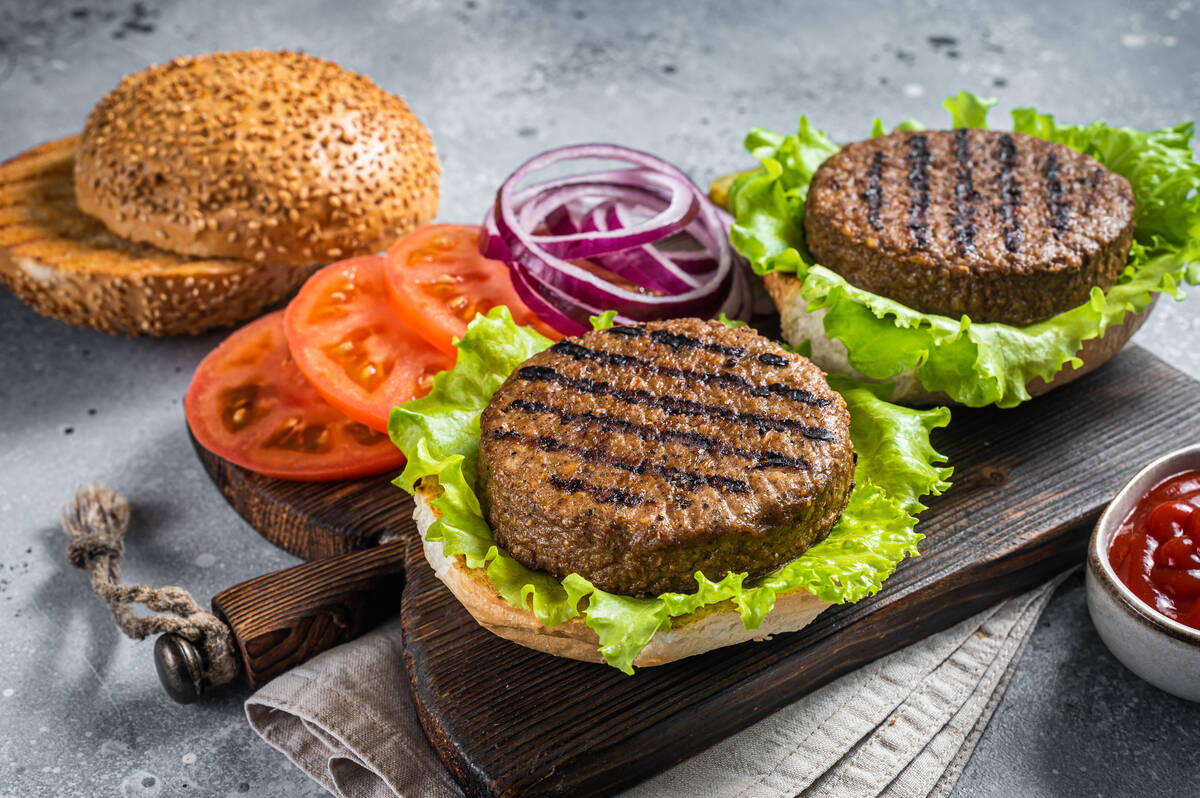What’s really in your veggie burger: 7 plant-based meat myths
Plant-based meats are healthier options for enjoying your favorite meals. But are these alternatives as wholesome and sustainable as they seem, or are common misconceptions clouding our judgment? Let’s explore some myths about plant-based meats, uncovering the truth behind your veggie burger.
More people are becoming familiar with veganism and vegetarianism. Fast-food chains now offer plant-based options, like KFC’s Beyond Chicken and Burger King’s Impossible Burger. With various movements to encourage a vegan lifestyle such as Veganuary — a challenge to go vegan for the month of January — people are starting to explore veganism, and innovative plant-based meats are garnering the attention of even the most devoted carnivores.
A February study by Statista indicated a growing interest in plant-based diets, with approximately 4 percent of the U.S. population, equating to 13.4 million people, identifying as vegan. This significant rise has led to an increase in products designed to mimic the look, flavor and texture of meat, offering consumers more choices than before. But everything about this lifestyle may not be as perfect as it seems, and knowing the truth behind plant-based meats might make you rethink before taking another bite of that veggie burger.
Healthier options?
Medical News Today states that plant-based meats provide vitamins, minerals and antioxidants necessary to support health. They can aid with weight management, diabetes and gut health, and may reduce the risks of heart disease, hypertension and cardiovascular issues.
The downside? Many plant-based meats contain high sodium levels, which increases the risk of high blood pressure. They also lack essential nutrients like vitamin B12 and zinc. Some plant-based products contain unhealthy artificial ingredients, fillers and excessive fats, so reading nutritional labels and choosing options with whole-food ingredients are important.
How is it made?
While some plant-based meats undergo processing to achieve meatlike qualities, many are made from whole-food ingredients such as peas, beans, lentils and grains. Plant-based meats are not inherently junk foods, as many are crafted to offer valuable nutrients versus traditional meat, such as lower saturated fats and added fiber.
The key is to check the ingredients list for whole foods. Innovations in food technology have led to products that closely replicate meat’s texture and taste without excessive processing, which means you can cook your favorite meatballs without feeling guilty.
Enough protein?
According to ScienceDirect, many plant-based meat products are designed to deliver similar or even higher amounts of protein than their animal-based counterparts, depending on the ingredients used. Healthline further supports plant-based proteins, stating that they can contribute to a healthier diet to avoid risks linked to high consumption of red and processed meats, such as diabetes, cardiovascular disease and certain cancers.
Environmental impact
A study sponsored by Elsevier revealed that plant-based meat substitutes generally result in lower greenhouse gas emissions than animal-derived meats. They also require less land, with studies showing land use for plant-based burger patties is up to 14 times lower than beef. The study also shows that plant-based meat has a significantly smaller water footprint and demands less nonrenewable energy.
But The New York Times argues otherwise, saying that many plant-based companies fail to disclose emissions from crops, livestock or deforestation linked to soy, a key ingredient in several plant-based products. While plant-based meats represent a more sustainable choice, their environmental impact is not free from concern.
How do they taste?
Advances in food science have led to plant-based meats that closely mimic the taste and texture of animal meat. According to ScienceDirect, certain processes, including the Maillard reaction that causes food to brown and develop flavor, and the use of specific chemicals, such as cysteine and ribose, help mimic the savory flavors of meat during cooking.
Plant-based meats are packed with protein, using soy, lentils and mushrooms to deliver the essential juiciness and chew that meat lovers crave. The secret to this success? A mix of clever additives, such as flavor enhancers and binding agents, that help create a meatlike experience. Despite some challenges with texture, these alternatives are rapidly evolving, offering healthy options that might make you forget you’re not eating real meat.
Loaded with GMOs?
Not all plant-based meats contain genetically modified organisms, or GMOs. Many brands offer non-GMO choices, like Beyond Meat, which uses simple plant-based, non-GMO ingredients in its products. It derives proteins, fats, minerals, flavors, colors and carbohydrates from sources such as peas, beans, potatoes and brown rice, which all do well in soups, stews and more.
Because of these factors, you get all the benefits you like without the cholesterol, hormones and GMOs. As they say: It’s meat, upgraded.
Only for vegans and vegetarians?
The growing popularity of plant-based meats can be largely attributed to flexitarians — people who have not completely ditched meat but are cutting back for health or environmental reasons. It’s a path to eating healthier while holding onto that burger with a side of fries.
ProVeg International research shows that 70 percent of Beyond Meat consumers are flexitarians and that 9 out of 10 U.S. shoppers who purchased plant-based milk also buy dairy milk. Plant-based options are stepping up, offering flexibility and flavor so you can feel good while indulging in the occasional cheat meal. And even if you’re not a flexitarian, why not join the movement?
Plant-based meats provide a tasty and sustainable option for all kinds of eaters — not just vegans and vegetarians. While plenty of myths surround their benefits, they offer a flavorful, guilt-free alternative to enjoy your favorite dishes.













